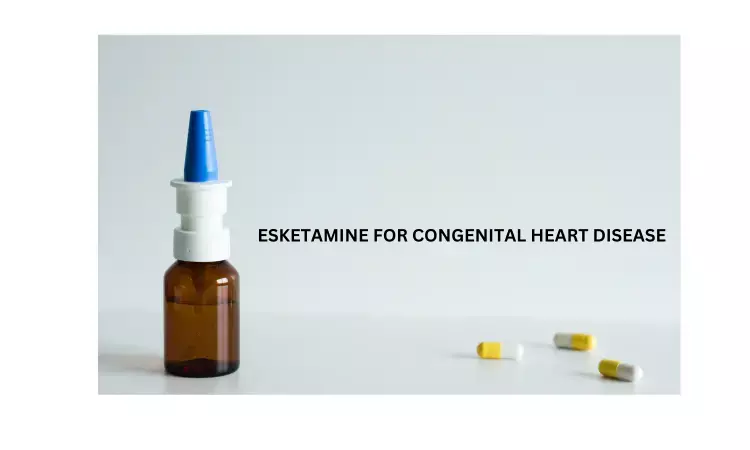- Home
- Medical news & Guidelines
- Anesthesiology
- Cardiology and CTVS
- Critical Care
- Dentistry
- Dermatology
- Diabetes and Endocrinology
- ENT
- Gastroenterology
- Medicine
- Nephrology
- Neurology
- Obstretics-Gynaecology
- Oncology
- Ophthalmology
- Orthopaedics
- Pediatrics-Neonatology
- Psychiatry
- Pulmonology
- Radiology
- Surgery
- Urology
- Laboratory Medicine
- Diet
- Nursing
- Paramedical
- Physiotherapy
- Health news
- Fact Check
- Bone Health Fact Check
- Brain Health Fact Check
- Cancer Related Fact Check
- Child Care Fact Check
- Dental and oral health fact check
- Diabetes and metabolic health fact check
- Diet and Nutrition Fact Check
- Eye and ENT Care Fact Check
- Fitness fact check
- Gut health fact check
- Heart health fact check
- Kidney health fact check
- Medical education fact check
- Men's health fact check
- Respiratory fact check
- Skin and hair care fact check
- Vaccine and Immunization fact check
- Women's health fact check
- AYUSH
- State News
- Andaman and Nicobar Islands
- Andhra Pradesh
- Arunachal Pradesh
- Assam
- Bihar
- Chandigarh
- Chattisgarh
- Dadra and Nagar Haveli
- Daman and Diu
- Delhi
- Goa
- Gujarat
- Haryana
- Himachal Pradesh
- Jammu & Kashmir
- Jharkhand
- Karnataka
- Kerala
- Ladakh
- Lakshadweep
- Madhya Pradesh
- Maharashtra
- Manipur
- Meghalaya
- Mizoram
- Nagaland
- Odisha
- Puducherry
- Punjab
- Rajasthan
- Sikkim
- Tamil Nadu
- Telangana
- Tripura
- Uttar Pradesh
- Uttrakhand
- West Bengal
- Medical Education
- Industry
Intranasal Esketamine safe premedication for sedation in children

A new study published in BMC Anesthesiology suggests that esketamine administered intranasally had an effective dose (ED50) of 0.7 mg/kg, which was both safe and efficient for sedating young patients with congenital heart disease (CHD) prior to surgery.
Esketamine's sedative effects make it a popular premedication. For children with congenital heart disease, the ideal dose for intranasal usage has not yet been established. In order to determine the median effective dose of esketamine for intranasal premedication in children with CHD, Jiajia Huang and colleagues did this study.
In March 2021, 34 CHD kids who needed premedication were enrolled. Esketamine intranasal administration was started at a dosage of 1 mg/kg. The dose for the following patient was either raised or decreased by 0.1 mg/kg, which was changed between each kid, depending on how well the preceding patient tolerated the sedation. A Ramsay Sedation Scale score of three or less and a Parental Separation Anxiety Scale score of two or less were considered successful sedations. The modified sequential approach was used to determine the necessary ED50 of esketamine. At 5-minute intervals following the administration of the medication, non-invasive measurements of blood pressure, heart rate, peripheral oxygen saturation, onset of drowsiness, and adverse responses were taken.
The key findings of this study were:
1. The 34 children who were recruited had an average age of 22.5 ± 16.4 (4–54) months and a mean weight of 11.2 ± 3.6 (5.5–20.5) kg; they were classified I-III by the American Society of Anesthesiologists.
2. In pediatric patients with CHD, the ED50 of intranasal S(+)-ketamine (esketamine) needed for preoperative sedation was 0.7 (95% confidence interval: 0.54-0.86) mg/kg, and the mean start time of sedation was 16.39 7.24 min.
3. There were no significant adverse effects, such as respiratory distress, nausea, or vomiting.
Reference:
Huang, J., Liu, D., Bai, J., & Gu, H. (2023). Median effective dose of esketamine for intranasal premedication in children with congenital heart disease. In BMC Anesthesiology (Vol. 23, Issue 1). Springer Science and Business Media LLC. https://doi.org/10.1186/s12871-023-02077-1
Neuroscience Masters graduate
Jacinthlyn Sylvia, a Neuroscience Master's graduate from Chennai has worked extensively in deciphering the neurobiology of cognition and motor control in aging. She also has spread-out exposure to Neurosurgery from her Bachelor’s. She is currently involved in active Neuro-Oncology research. She is an upcoming neuroscientist with a fiery passion for writing. Her news cover at Medical Dialogues feature recent discoveries and updates from the healthcare and biomedical research fields. She can be reached at editorial@medicaldialogues.in
Dr Kamal Kant Kohli-MBBS, DTCD- a chest specialist with more than 30 years of practice and a flair for writing clinical articles, Dr Kamal Kant Kohli joined Medical Dialogues as a Chief Editor of Medical News. Besides writing articles, as an editor, he proofreads and verifies all the medical content published on Medical Dialogues including those coming from journals, studies,medical conferences,guidelines etc. Email: drkohli@medicaldialogues.in. Contact no. 011-43720751


